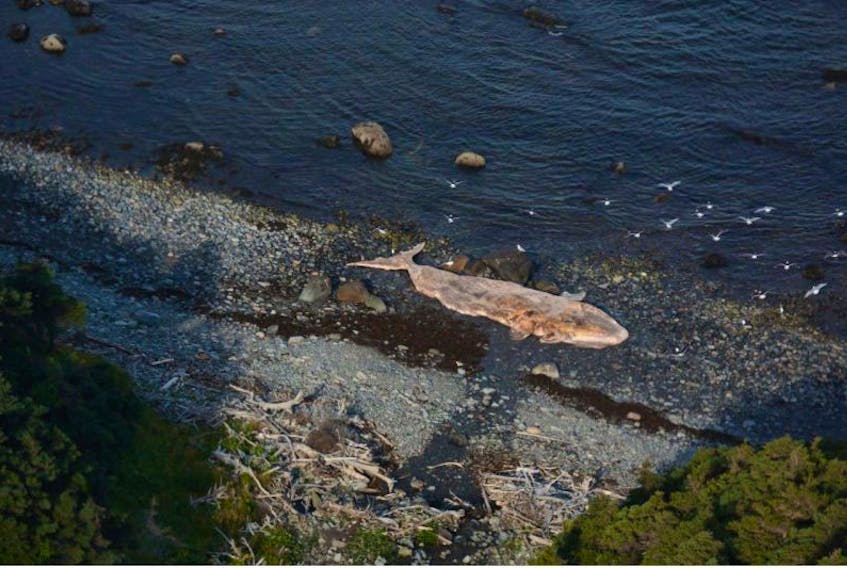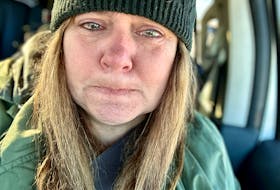There are a couple of reasons why there haven’t been any right whale deaths in waters around the Atlantic provinces this year — good luck and good management.
Last year, an alarming number of endangered whales died — 13 in Canadian waters and five more off the United States. The bodies of another two whales have shown up in American waters this year, while several whale entanglement rescues were carried out in the Bay of Fundy.
RELATED: Fishing industry taking steps to protect endangered whales, says association
Only about 450 of the whales, including 100 breeding females, remain. Without greater protection, there’s a consensus the species will be functionally extinct in 20 years. Most deaths occur from a combination of collisions with ships and getting caught up in fishing gear.
Something had to be done.
Last year, Ottawa ordered ships to reduce speed in Atlantic waters to help the slow-moving marine mammals avoid collisions. Fishermen were asked to reduce the amount of gear left in the water to lessen the chances of entanglement.
There were warning signs from abroad over the whale deaths, including threats about restrictions on Canadian seafood from the U.S. and Europe unless effective conservation and safety measures were put in place.
Since 85 per cent of Canadian lobster exports go to the U.S., the impact would be huge on the East Coast fishery if protection measures didn’t satisfy the Americans.
Ottawa had little choice but to take action — temporarily closing fishing zones this spring wherever a whale was spotted — mostly off northeastern New Brunswick and Gaspé. Lucrative crab and lobster seasons were affected.
Fishermen were hesitant at first, but most got on board and took a proactive role in protecting the whales and their livelihood. It was a difficult choice — defend the income of thousands of fishermen and plant workers or protect North Atlantic right whales from extinction. In the court of world opinion, fishermen would be the losers.
But government and industry co-operated to achieve the right result despite some bumps in road. Then-fisheries minister Dominic LeBlanc was under intense pressure and deserves credit for sticking to his guns.
Support from fishermen grew quickly. When the spring lobster season wrapped up in the Gulf, more than 30 fishing boats helped DFO and Canadian Coast Guard personnel in a two-day sweep of the lobster grounds, looking for missing or forgotten lobster gear thought to make up 10 per cent of all marine litter.
Fishers joined the cause because it was the right thing to do, and because they believe that lobster fishing and right whales don’t have to be mutually exclusive – they can peacefully co-exist.
Fishers understand the importance of a balanced and protected ecosystem. This year was a learning curve for all groups in protecting right whales.
But the ocean is a public resource that all Canadians need to help protect.









